Hyundai Bayon VS Hyundai i30 Wagon – Specs, Efficiency & Price Comparison
Which model is the better choice – the Hyundai Bayon or the Hyundai i30 Wagon? We compare performance (100 HP vs 140 HP), boot capacity (411 L vs 602 L), efficiency (5.40 L vs 5.70 L), and of course, the price (20100 £ vs 24800 £).
Find out now which car fits your needs better!
The Hyundai Bayon (SUV) is powered by a Petrol engine and comes with a Manuel or Automatic transmission. In comparison, the Hyundai i30 Wagon (Estate) features a Petrol or Petrol MHEV engine and a Manuel or Automatic gearbox.
When it comes to boot capacity, the Hyundai Bayon offers 411 L, while the Hyundai i30 Wagon provides 602 L – depending on what matters most to you. If you’re looking for more power, you’ll need to decide whether the 100 HP of the Hyundai Bayon or the 140 HP of the Hyundai i30 Wagon suits your needs better.
There are also differences in efficiency: 5.40 L vs 5.70 L. In terms of price, the Hyundai Bayon starts at 20100 £, while the Hyundai i30 Wagon is available from 24800 £.
Compare all the key specs now and find out which model fits your lifestyle best!
In the competitive landscape of compact cars, the Hyundai Bayon offers a stylish and practical option with its SUV-like stance, while the Hyundai i30 Kombi appeals to those seeking extra space and versatility in a hatchback. Both models showcase Hyundai's commitment to quality and innovation, featuring advanced safety technologies and efficient engines. Ultimately, the choice between the Bayon and the i30 Kombi will come down to personal preference for SUV versatility versus hatchback practicality.
Hyundai Bayon
The Hyundai Bayon is a compact crossover that effortlessly merges practicality with modern design. Its sleek exterior and spacious interior make it an ideal choice for urban settings and longer journeys alike. With a focus on comfort and connectivity, this vehicle provides a smooth driving experience paired with advanced technology features.
details @ hyundai.news
@ hyundai.news
 @ hyundai.news
@ hyundai.news
 @ hyundai.news
@ hyundai.news
 @ hyundai.news
@ hyundai.news
 @ hyundai.news
@ hyundai.news
Hyundai i30 Wagon
The Hyundai i30 Wagon offers a blend of practicality and style, making it a popular choice for families and those in need of extra space. Its sleek exterior and comfortable interior provide a pleasant driving experience, while advanced safety features ensure peace of mind on the road. The i30 Wagon stands out with its impressive fuel efficiency and reliability, catering to both urban and rural lifestyles.
details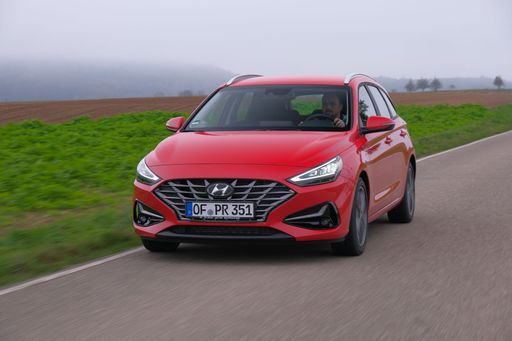 @ hyundai.news
@ hyundai.news
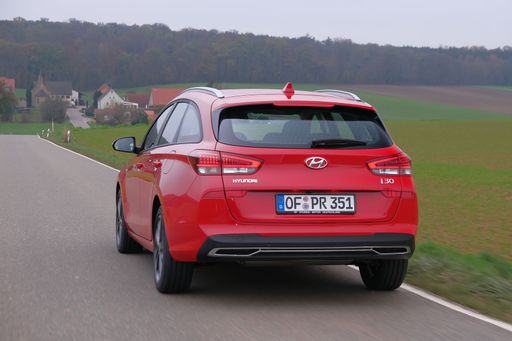 @ hyundai.news
@ hyundai.news
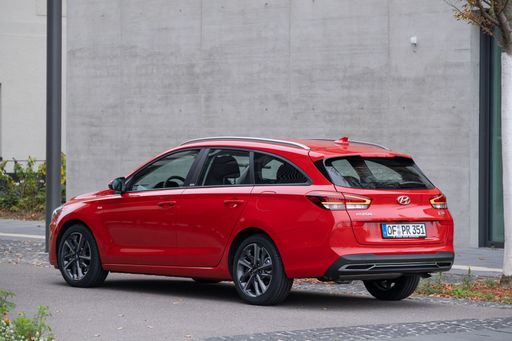 @ hyundai.news
@ hyundai.news
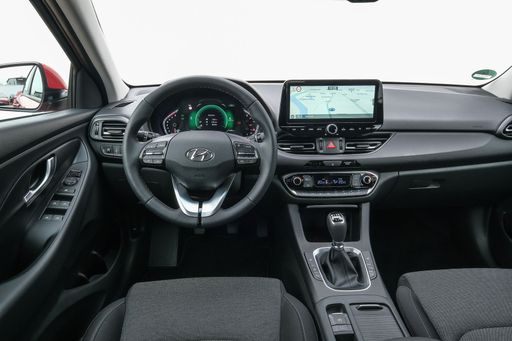 @ hyundai.news
@ hyundai.news
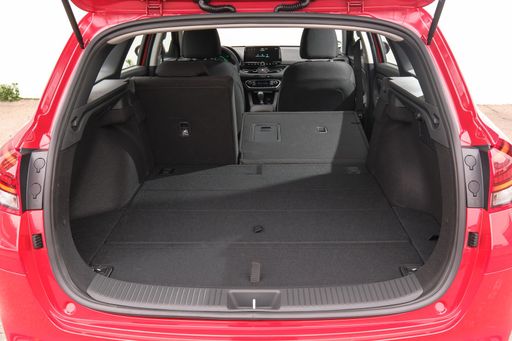 @ hyundai.news
@ hyundai.news
A Tale of Two Hyundais: Bayon vs. i30 Kombi
The automotive landscape is constantly evolving, and Hyundai has positioned itself well within this competitive realm. Two of its notable models for 2024 are the Hyundai Bayon and the Hyundai i30 Kombi. While both vehicles showcase Hyundai's commitment to innovation, technology, and style, they cater to different needs and preferences. In this article, we’ll delve into a detailed comparison of these two vehicles, focusing on their technical aspects and innovations.
Design and Body Type
The Hyundai Bayon stands out as an SUV, appealing to those who appreciate a higher driving position and a more rugged aesthetic. It features compact dimensions with a length of 4180mm, a width of 1775mm, and a height of 1500mm, making it ideal for city driving and weekend adventures alike. The Bayon offers a trunk capacity of 411 liters, providing ample space for daily tasks and leisure.
On the flip side, the Hyundai i30 Kombi, a stylish wagon, measures 4585mm in length and 1795mm in width, bringing a more extended profile to the table. This model prioritizes practicality with a massive trunk capacity of 602 liters, making it an excellent choice for families and road trippers. A lower height of 1475mm gives it a sleeker appearance while still providing comfortable cabin room.
Performance and Engine Options
Under the hood, the Hyundai Bayon is equipped with a 1.0-liter petrol engine delivering 100 HP (74 kW) and generates 172 Nm of torque. It boasts a commendable fuel consumption of 5.4 liters per 100 km. With options for manual or automated dual-clutch transmission, the Bayon accelerates from 0-100 km/h in a respectable 11.3 seconds, reaching a top speed of 179 km/h.
The i30 Kombi, however, provides a broader range of options including both petrol and petrol MHEV (mild hybrid electric vehicle) variants. Its engines offer outputs ranging from 100 HP in the base model to a more powerful 140 HP (103 kW) in higher trims, with a torque peak of 253 Nm. The i30 Kombi exhibits slightly higher fuel consumption, with a recorded average of 5.6 liters per 100 km, while still offering impressive performance metrics—allowing for acceleration to 100 km/h in as little as 9.8 seconds for the turbo variant. The models also provide a top speed ranging from 178 km/h to 197 km/h.
Driving Experience and Comfort
Both vehicles are front-wheel drive, but they provide distinctive driving experiences. The Bayon’s compact size and SUV styling offer a commanding view of the road and a more elevated ride, which can enhance driver confidence and visibility in urban environments. Its interior comfortably seats five, with a design that emphasizes user-friendly technology and smart storage solutions.
The i30 Kombi, meanwhile, has a sportier driving stance with excellent handling characteristics often attributed to its wagon design. Its spacious interior and premium materials contribute to a comfortable ride for both drivers and passengers. This model also emphasizes innovation with its infotainment system that integrates seamlessly with smartphone apps, ensuring connectivity on-the-go.
Technology and Safety Features
Hyundai has loaded both vehicles with a suite of technological advancements. The Bayon features an impressive array of driver assistance systems, ensuring safety and convenience. Features such as lane-keeping assist, blind-spot monitoring, and adaptive cruise control enhance the overall driving experience.
The i30 Kombi does not fall short in this area, either. With features such as autonomous emergency braking, smart cruise control, and a comprehensive infotainment setup, the i30 Kombi prioritizes both safety and entertainment. Its larger display and premium sound system further enhance the cabin experience, making it a favorite for tech enthusiasts.
Price and Value Proposition
When considering value, the Hyundai Bayon starts at €27,800, which showcases its affordability, especially given its SUV stature and efficient performance. Mid-level trims go up to approximately €29,600. In contrast, the Hyundai i30 Kombi is slightly pricier, starting from €28,590 and reaching up to €34,650 for higher-end versions. However, its expansive cargo space and additional driving capabilities offer significant value for families and those needing extra practicality.
Conclusion
Ultimately, the choice between the Hyundai Bayon and the Hyundai i30 Kombi comes down to individual needs. The Bayon is an excellent choice for those seeking a compact SUV with modern technology, while the i30 Kombi excels in practicality, space, and driving dynamics. Hyundai’s strategic offerings in both segments ensure that they have a vehicle to meet diverse consumer demands in an ever-competitive automotive market.

|

|
|
|
|
Costs and Consumption |
|
|---|---|
|
Price
20100 - 25800 £
|
Price
24800 - 30100 £
|
|
Consumption L/100km
5.4 - 5.5 L
|
Consumption L/100km
5.7 - 6 L
|
|
Consumption kWh/100km
-
|
Consumption kWh/100km
-
|
|
Electric Range
-
|
Electric Range
-
|
|
Battery Capacity
-
|
Battery Capacity
-
|
|
co2
124 g/km
|
co2
130 - 136 g/km
|
|
Fuel tank capacity
40 L
|
Fuel tank capacity
50 L
|
Dimensions and Body |
|
|---|---|
|
Body Type
SUV
|
Body Type
Estate
|
|
Seats
5
|
Seats
5
|
|
Doors
5
|
Doors
5
|
|
Curb weight
1170 - 1195 kg
|
Curb weight
1316 - 1461 kg
|
|
Trunk capacity
411 L
|
Trunk capacity
602 L
|
|
Length
4180 mm
|
Length
4585 mm
|
|
Width
1775 mm
|
Width
1795 mm
|
|
Height
1500 mm
|
Height
1475 mm
|
|
Payload
460 - 465 kg
|
Payload
439 - 524 kg
|
Engine and Performance |
|
|---|---|
|
Engine Type
Petrol
|
Engine Type
Petrol, Petrol MHEV
|
|
Transmission
Manuel, Automatic
|
Transmission
Manuel, Automatic
|
|
Transmission Detail
Schaltgetriebe, Automat. Schaltgetriebe (Doppelkupplung)
|
Transmission Detail
Schaltgetriebe, Automat. Schaltgetriebe (Doppelkupplung)
|
|
Drive Type
Front-Wheel Drive
|
Drive Type
Front-Wheel Drive
|
|
Power HP
100 HP
|
Power HP
100 - 140 HP
|
|
Acceleration 0-100km/h
11.3 - 12.4 s
|
Acceleration 0-100km/h
9.8 - 13.3 s
|
|
Max Speed
176 - 179 km/h
|
Max Speed
178 - 197 km/h
|
|
Torque
172 - 200 Nm
|
Torque
172 - 253 Nm
|
|
Number of Cylinders
3
|
Number of Cylinders
3 - 4
|
|
Power kW
74 kW
|
Power kW
74 - 103 kW
|
|
Engine capacity
998 cm3
|
Engine capacity
998 - 1482 cm3
|
General |
|
|---|---|
|
Model Year
2024
|
Model Year
2024
|
|
CO2 Efficiency Class
D
|
CO2 Efficiency Class
D, E
|
|
Brand
Hyundai
|
Brand
Hyundai
|
Hyundai Bayon
Introducing the Hyundai Bayon: A New Era in Compact SUVs
The Hyundai Bayon, a compact SUV designed with urban adventurers in mind, is making waves with its exceptional blend of style, performance, and technology. The brand has pulled out all the stops to ensure that the Bayon stands out in the crowded SUV market, offering a vehicle that is both practical and innovative.
Sleek Design and Cutting-Edge Aerodynamics
The Bayon features a striking exterior design, characterised by its bold lines and angular shapes. With a length of 4180 mm, a width of 1775 mm, and a height of 1500 mm, the Bayon commands attention with its modern appeal and aerodynamic efficiency. These dimensions not only contribute to its sleek design but also enhance fuel efficiency, achieving an impressive 5.4 L/100 km.
Engine Performance and Specifications
Under the bonnet, the Bayon is powered by a 1.0-litre T-GDI petrol engine, delivering a robust 100 PS or 74 kW. This engine is available with either a manual or automatic gearbox, meeting varied driver preferences. The front-wheel-drive system complements its urban-centric design, ensuring a smooth and responsive ride.
Maximised Interior Space and Comfort
The spacious interior of the Bayon accommodates up to five passengers comfortably. The vehicle boasts a boot space of 411 litres, perfect for both everyday use and weekend getaways. The cabin is designed with practicality and technology in mind, with intuitive controls and ample storage options.
Advanced Technology and Connectivity
Hyundai has equipped the Bayon with state-of-the-art technology to enhance the driving experience. The SUV features a high-resolution touchscreen, offering seamless connectivity with Apple CarPlay and Android Auto. Safety is also a priority, with multiple driver assistance systems including lane-keeping assist and forward collision avoidance assist.
Environmental Efficiency
Despite its powerful performance, the Bayon achieves a respectable CO2 efficiency class of D, with emissions as low as 122 g/km. This balance between performance and environmental responsibility makes the Bayon an attractive option for conscientious drivers.
Affordability and Market Appeal
The Hyundai Bayon is competitively priced, ranging from €22,900 to €29,600. Its affordable running costs, estimated at 32.3 to 36.4 cents per kilometre, further enhance its appeal to budget-conscious consumers. With monthly costs ranging from €806 to €909, the Bayon provides excellent value without compromising on features or performance.
Final Thoughts
The Hyundai Bayon truly stands out in the compact SUV segment, combining style, innovation, and practicality in an appealing package. It offers a versatile driving experience suited to the demands of modern urban living, making it a top contender in its class. As Hyundai continues to champion forward-thinking design and technology, the Bayon is a testament to the company's ongoing commitment to excellence.
Hyundai i30 Wagon
Introducing the Hyundai i30 Wagon: A Perfect Blend of Performance and Practicality
The Hyundai i30 Kombi is a testament to the automaker's commitment to delivering high-quality vehicles that cater to a wide range of drivers. This versatile estate car combines sleek style, innovative technology, and efficient performance, making it an attractive option for those seeking a reliable family car or a spacious vehicle for everyday use.
Powerful Yet Efficient: Engine Options
The Hyundai i30 Wagon offers a selection of engine configurations, designed to balance power and efficiency seamlessly. You can choose from conventional petrol engines or the advanced 48V mild-hybrid technology for those looking to minimise their carbon footprint while enjoying an exhilarating drive.
The petrol engines provide a dynamic driving experience, while the mild-hybrid options incorporate a small electric motor to boost efficiency. Both engine types promise smooth, responsive performance, ensuring every drive is a pleasure.
Seamless Transmission Systems
With the i30 Wagon, Hyundai offers both manual and automatic transmission systems to cater to different driving preferences. The manual transmission provides direct control for enthusiasts who enjoy a more hands-on driving experience, while the automatic option is perfect for those prioritising convenience and comfort during their journeys.
Innovative Technology and Features
The interior of the Hyundai i30 Wagon is designed to offer maximum comfort and connectivity. Equipped with the latest infotainment system, drivers and passengers can enjoy access to a wide array of features, ensuring entertainment and connectivity on the go. The system is compatible with Apple CarPlay and Android Auto, providing seamless integration with your smartphone.
Safety technology is also at the forefront, with multiple driver-assistance features that enhance road safety, making the i30 Wagon a smart choice for families and safety-conscious drivers.
Spacious and Versatile Interior
Inside, the i30 Wagon boasts an impressive amount of space, with a boot capacity of 602 litres, easily accommodating the demands of a busy lifestyle. With comfortable seating for up to five passengers and flexible load space, it's perfect for long trips or daily commutes. Practicality is matched with attention to detail in design, making the interior both stylish and functional.
Pricing and Sustainability
The Hyundai i30 Wagon not only provides excellent value for money but also demonstrates a commitment to sustainability. With competitive pricing and efficient fuel consumption, it's an economical choice that doesn’t compromise on performance or quality. CO2 emissions are kept in check, making it an environmentally friendly option within this segment.
Conclusion: The Perfect Automotive Companion
The Hyundai i30 Wagon is an exceptional vehicle that strikes an ideal balance between innovation, style, and practicality. Whether you're navigating city streets or embarking on a countryside adventure, this car provides the reliability, comfort, and performance you require. It's more than just an estate car; it's your perfect automotive companion.
The prices and data displayed are estimates based on German list prices and may vary by country. This information is not legally binding.
